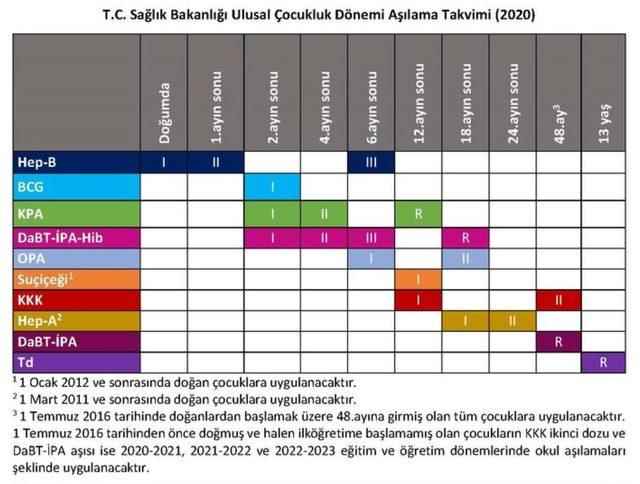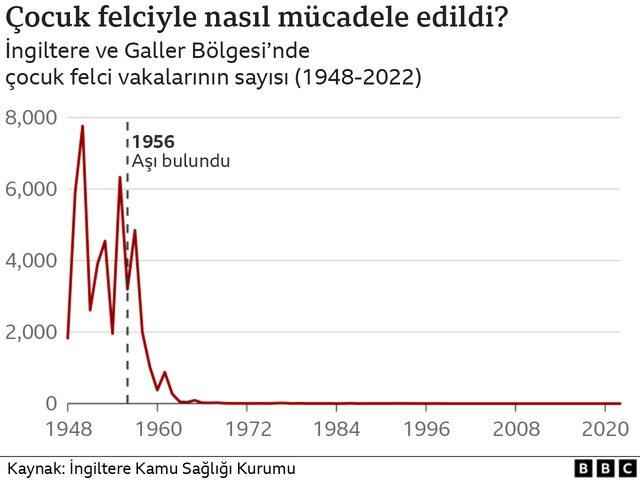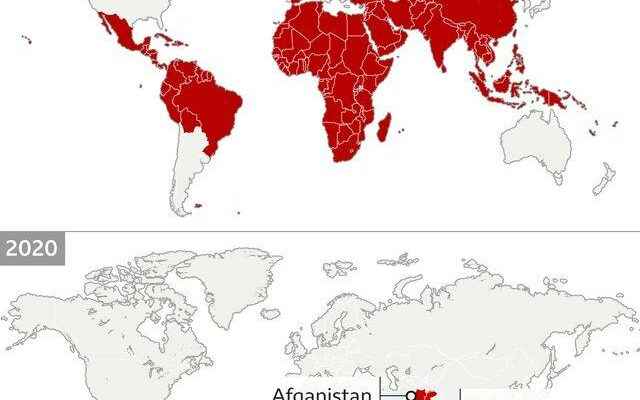Health ministry officials in England announced that an alarming rate of the virus causing polio was detected in the samples taken from the sewerage network in the capital, London.
There are no recorded cases due to the polio virus. However, health officials went into a state of alert.
What is polio and how is it spread?
Polio (polio) is a serious infection transmitted by contact with the feces of a person carrying the virus or by particles shed when coughing and sneezing.
The virus mostly affects children under the age of five.
The majority of infected people do not show any symptoms, but some may experience:
- High fever
- Throat ache
- Headache
- Stomache ache
- pain in muscles
- Nausea
Serious ailments such as paralysis of the legs can occur as a result of the polio virus attacking the nervous system, at rates ranging from one percent to one thousandth of those infected.
This type of paralysis is mostly temporary and the ability to move can be regained over time.
However, if the polio virus affects the muscles used for breathing, life-threatening diseases can also be seen.
At what age is the polio vaccine given?
In England, the polio vaccine, which was used as a drop in the past and is thought to be highly effective, was used. Then it was switched to the vaccine form.
The first polio vaccine is given to a baby at eight weeks of age, while four more doses are administered until the age of 14 as part of routine childhood immunizations.
All of these vaccines are required to become immune to polio.
In Turkey Ministry of Health vaccination scheduleaccording to the polio vaccine; It is administered in the form of DaBT-IPA-Hib (five mixed vaccine), which protects against diphtheria, pertussis, tetanus, polio (polio) and Hib meningitis, at the age of 2, 4, 6 months in infancy and as booster vaccines at 18 and 48 months.

How can you protect your children?
First of all, you need to check your children’s vaccination cards to see if any vaccinations are missing.
If there is a missing vaccine, it is recommended to consult your family doctor.
Health officials say the first three doses of vaccines for babies provide strong protection against polio.
However, the rate of those who had all the first three doses in London was 86 percent. It is stated that this rate is 92 percent across the country.
Looking at the 2020/21 figures, it seems that 34,000 five-year-olds in London did not receive their fourth dose of polio vaccine.

Is polio a worldwide problem?
Since 1988, there has been a 99 percent decrease in the number of polio cases.
The number of polio cases fell from 350,000 in 1988 to 175 in 2019.
All continents except Asia have been declared polio-free.
The last case of polio in England was in 1984.
The virus is still found in countries such as Afghanistan and Pakistan, where the vaccine is not available to everyone.

According to the World Health Organization, 83 percent of babies worldwide received the first three doses of the polio vaccine in 2020.
Over the past decade, 10 billion doses of the oral polio vaccine have been administered worldwide.
In the same period, more than 6.5 million children could have been paralyzed due to poliovirus, had it not been for drip vaccination.
Why has polio returned?
In England, very low numbers of polio viruses were detected in samples collected from sewers each year.
But now, for the first time, genetically linked viruses have been found repeatedly over the course of a few months.
The polio virus detected in London is thought to have probably spread from someone who had recently received the polio vaccine.
However, there are no case records in hospitals.
